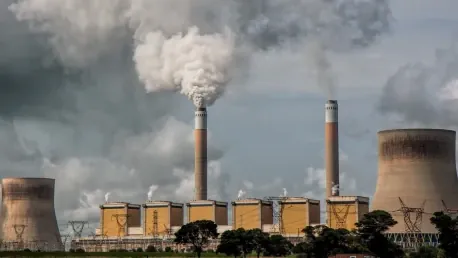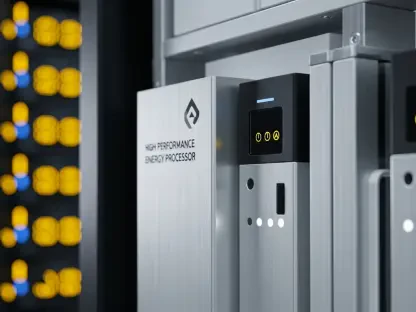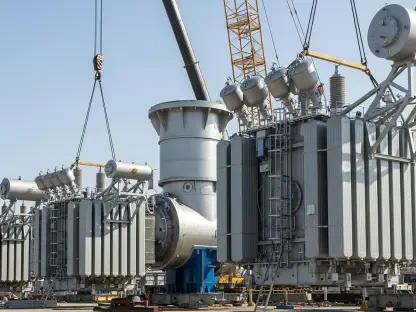In recent years, hydrogen fuel has garnered significant attention as an alternative energy source as the global community seeks to combat climate change and drive economic growth through decarbonization. Though hydrogen has long been considered a promising yet underutilized resource, its unique properties make it a viable candidate for powering a broad range of applications. The question remains whether hydrogen fuel can completely replace fossil fuels to meet our energy needs. Despite its numerous advantages, the reality suggests that hydrogen will likely play a complementary role alongside other renewable energy sources rather than serving as a standalone solution.
Advantages of Hydrogen Fuel
One of the primary benefits of hydrogen fuel is its versatile production methods, which allow it to adapt to different energy needs and geographical contexts. Hydrogen can be produced through various processes, including natural gas reforming, biomass gasification, and electrolysis of water. Among these, green hydrogen—produced through electrolysis using renewable energy sources like wind and solar—is particularly advantageous as it offers a zero-emission solution. This adaptability makes hydrogen an attractive option for various sectors, from heavy industry to transportation.
Moreover, hydrogen’s high energy density allows it to power heavy-duty machinery, vehicles, container ships, and even aircraft. This makes hydrogen an ideal substitute for fossil fuels in traditionally high-emission industries. Hydrogen-powered vehicles, for instance, can achieve substantial ranges with less frequent refueling compared to electric vehicles. The refueling process for hydrogen tanks is also relatively quick, akin to that of gasoline or diesel vehicles, which provides a practical advantage for commercial and long-haul transportation. These features make hydrogen a compelling alternative within the landscape of renewable energy solutions.
Challenges and Limitations
However, hydrogen fuel is not without its challenges and limitations. One of the most significant barriers to its widespread adoption is the lack of a comprehensive refueling infrastructure. While hydrogen fueling stations are gradually being developed, particularly in regions like California and parts of Europe, the current network is insufficient to support a large-scale shift to hydrogen-powered vehicles. The expansion of this infrastructure requires substantial investment and coordinated efforts from both public and private sectors.
Additionally, the current methods of hydrogen production are not all environmentally friendly. A significant portion of the world’s hydrogen supply still comes from gray hydrogen production, which relies on polluting processes such as coal gasification and natural gas reforming. Transitioning to green hydrogen is essential for realizing the full environmental benefits of this alternative fuel. This shift necessitates significant advancements in renewable energy technologies and increased capacity for green hydrogen production, which, while promising, are still in the development stages.
The Role of Hydrogen in a Diversified Energy Strategy
Given these challenges, it is clear that hydrogen fuel alone cannot replace fossil fuels entirely. Instead, hydrogen will play a crucial role within a diversified energy strategy aimed at achieving global decarbonization. In conjunction with other renewable energy technologies such as solar, wind, and bioenergy, hydrogen can help reduce our reliance on fossil fuels and mitigate the impacts of climate change. The integration of hydrogen into the broader energy matrix involves continued efforts to develop infrastructure, increase green hydrogen production, and enhance the efficiency and affordability of renewable energy sources.
Projects around the world are actively pursuing the production, distribution, and utilization of hydrogen fuel, highlighting its potential as a key component of the future energy landscape. For instance, initiatives in countries like Japan and Germany are focusing on building hydrogen-powered public transportation systems and industrial applications. These efforts underscore the importance of utilizing hydrogen as part of a multi-faceted approach to energy sustainability, rather than relying on it as a sole solution.
Conclusion
In recent years, hydrogen fuel has gained considerable attention as a potential alternative energy source in the global effort to address climate change and promote economic growth through decarbonization. Although hydrogen has long been seen as a promising yet underutilized resource, its unique characteristics make it a viable option for powering a wide array of applications. The debate continues on whether hydrogen fuel can fully replace fossil fuels to meet our energy demands. Despite its many benefits, the current consensus indicates that hydrogen is likely to play a complementary role alongside other renewable energy sources rather than serving as a standalone solution. This belief stems from the understanding that while hydrogen can significantly reduce carbon emissions, it faces several challenges, such as production costs and infrastructure requirements, that prevent it from being the sole provider of energy. In essence, hydrogen’s role in the energy landscape will synergize with other sustainable methods, collectively working towards reducing our carbon footprint and achieving a cleaner, more sustainable future.









